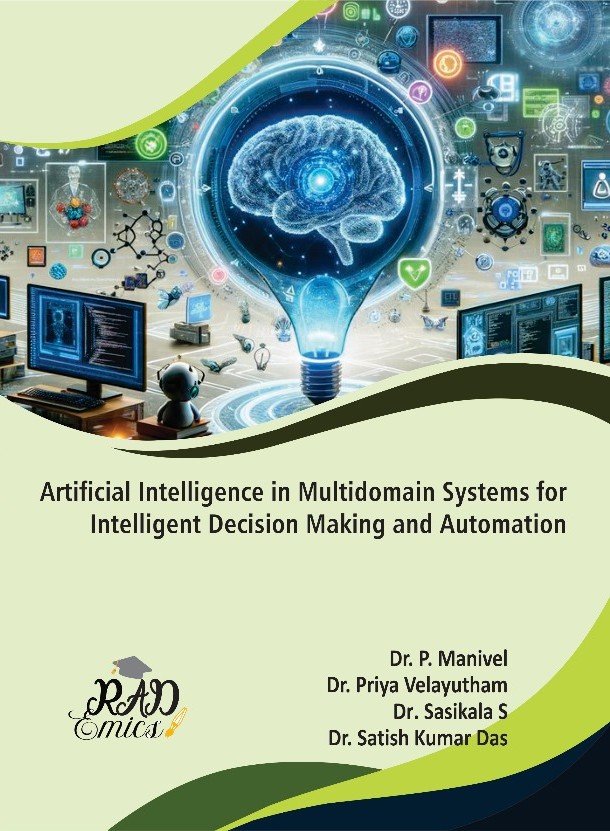
Author Name : V.T. Kruthika, K. Ramanan, K. Sangeetha
Copyright: ©2025 | Pages: 39
DOI: 10.71443/9789349552357-06
Received: 04/05/2025 Accepted: 06/07/2025 Published: 05/08/2025
The convergence of artificial intelligence and precision medicine is reshaping the landscape of personalized healthcare, enabling individualized diagnostics, risk prediction, and treatment planning. Traditional centralized machine learning frameworks raise significant concerns around data privacy, regulatory compliance, and scalability, particularly in healthcare systems dealing with highly sensitive, distributed clinical data. This chapter presents a comprehensive examination of federated and privacy-preserving artificial intelligence models as a viable solution to these challenges. Federated learning enables collaborative model training across multiple institutions without sharing raw patient data, thereby preserving privacy while leveraging the diversity of real-world health records, imaging data, and wearable sensor streams. The discussion explores the architectural foundations of cloud-based, edge-based, and hybrid federated infrastructures, and highlights their applicability in remote monitoring, multimodal disease prediction, and individualized care. In addition, critical attention is given to privacy-enhancing technologies such as differential privacy, secure aggregation, and data anonymization, along with challenges related to data heterogeneity, algorithmic bias, and fairness. By evaluating real-world deployments, infrastructure models, and emerging standards, this chapter outlines a pathway toward scalable, ethically grounded, and secure AI integration in precision medicine. The findings underscore the transformative potential of federated AI systems in enabling privacy-aware, clinically robust, and globally collaborative healthcare ecosystems.
The digital transformation of healthcare has accelerated the adoption of artificial intelligence (AI) in clinical decision-making, particularly within the emerging paradigm of precision medicine [1]. Precision medicine aims to tailor prevention, diagnosis, and treatment strategies to the individual characteristics of each patient by leveraging diverse data sources such as genomic profiles, electronic health records (EHRs), medical imaging, and real-time physiological monitoring [2]. AI techniques, particularly machine learning and deep learning, have demonstrated strong potential in interpreting complex biomedical data, detecting hidden patterns, and forecasting clinical outcomes [3]. The implementation of AI in precision medicine presents numerous ethical and operational challenges, with data privacy, system scalability, and secure collaboration among healthcare providers emerging as significant concerns [4]. Traditional centralized machine learning models require the pooling of large datasets into centralized servers, raising risks associated with data breaches, unauthorized access, and regulatory violations. The sensitivity of health-related data, coupled with the heterogeneity of medical systems, has created an urgent demand for innovative AI architectures that uphold privacy while enabling efficient, collaborative learning [5].
Federated learning (FL) has emerged as a transformative paradigm capable of addressing these challenges [6]. Unlike centralized models, federated learning allows multiple entitiesâ€â€Âsuch as hospitals, diagnostic labs, and wearable devicesâ€â€Âto collaboratively train machine learning models without exposing raw data [7]. In this distributed learning setup, local data remains within its origin, and only encrypted model parameters are shared with a central aggregator [8]. This enables the training of robust, generalizable models while preserving patient privacy and complying with strict data protection regulations like HIPAA and GDPR. In addition, federated learning reduces the risk of single-point failure and data silos, encouraging multi-institutional cooperation without compromising data sovereignty [9]. These advantages position FL as a critical enabler for the deployment of AI in precision medicine, especially in applications requiring broad demographic representation, decentralized care delivery, and real-time decision-making based on longitudinal health records [10].